By Erren Wheatland, Head of Health & Clinical Governance, Achieve together
Epilepsy is one of the most common neurological conditions, yet for those with complex needs, including people with severe or profound and multiple learning disabilities (PMLD), and autistic people it presents unique challenges. Managing epilepsy in people with complex disabilities is not just about seizure control—it’s about ensuring quality of life, autonomy, and wellbeing.
As Head of Health & Clinical Governance at Achieve together, I have dedicated my career to improving the lives of people with epilepsy and complex needs. Through our person-centred approach, innovative support structures, and specialist care teams, we enable people to lead fulfilling lives, regardless of the challenges they face.
Understanding complex Epilepsy
Epilepsy affects around 1 in 100 people in the UK, but for people with learning disabilities, this prevalence increases significantly. For those with PMLD and autism, epilepsy can be particularly complex, with multiple seizure types, resistance to medication, and the potential for sudden unexpected death in epilepsy (SUDEP).
Best practice in supporting individuals with complex epilepsy requires more than just medication management—it involves:
- Holistic, person-centred support that considers the person’s wellbeing, including their communication needs, sensory preferences, and daily living requirements.
- Highly trained teams with expertise in seizure recognition, emergency response, and medication management.
- Multi-disciplinary collaboration between families, healthcare professionals, and social care providers to ensure continuity of care.
- Proactive health monitoring to identify seizures trends with an aim to reduce seizure triggers and minimise complications.
- Empowering individuals to make choices, engage in meaningful activities, and lead enriched lives despite their condition.
Achieve together’s approach to supporting people with complex Epilepsy
At Achieve together, we are committed to setting the gold standard in specialist adult social care. Our approach to epilepsy care is underpinned by robust clinical governance, continuous learning, and an unwavering commitment to improving quality of life. Here’s how we make a difference:
- Personalised support plans
Each person has an individually tailored epilepsy support plan. These plans are co-produced with the person, families, healthcare teams, ensuring they reflect personal preferences, seizure patterns, and risk management strategies.
- Specialist environments
For people with PMLD and complex epilepsy, living environments must be adapted to ensure safety and comfort. Our homes feature:
- Seizure-safe bedrooms with padded furnishings to reduce injury risks.
- Assistive technology, including seizure alarms and monitoring systems.
- Sensory spaces designed to provide a calming environment, reducing seizure triggers.
- Expert-led team member training
Our teams undergo extensive epilepsy training, covering:
- Seizure recognition and emergency response.
- Medication administration, including rescue medications such as buccal midazolam (training is provided in line with ESNA-Midazolam-Guidelines).
- Supporting people with a Vagus Nerve Stimulator (VNS).
- Understanding the impact of epilepsy on communication and behaviour.
This level of expertise ensures that our team can respond quickly and appropriately, providing reassurance to people we support and their families.
- Health and wellbeing integration
Living with epilepsy is about more than seizure control—it’s about overall health. At Achieve together, we prioritise:
- Regular health reviews to monitor medication effectiveness and side effects.
- Specialist diet and hydration support, including ketogenic dietary management where appropriate.
- Emotional and mental wellbeing support, recognising the impact epilepsy can have on confidence, social engagement, and independence.
- Advocacy and thought leadership
Beyond providing support, we are committed to raising awareness of best practices in epilepsy management for people with complex needs. I am proud to have played a role in developing national standards for PMLD care and advocating for high-quality, person-centred support.
A life well lived: The impact of specialist support
One of the most rewarding aspects of my work is seeing the transformation in individuals when they receive the right support.
Take Daniel, a young man with complex epilepsy and severe learning disabilities. Before moving to Achieve together, Daniel experienced daily seizures that severely impacted his quality of life. Through a collaborative approach, including medication reviews, tailored sensory interventions, and support from a dedicated epilepsy specialist nurse, his seizures reduced significantly. Today, Daniel enjoys activities he once found inaccessible—music therapy, swimming, and engaging in sensory experiences that enhance his wellbeing.
This is what good epilepsy support looks like—not just managing symptoms but enabling people to experience life to the fullest.
Looking ahead: Raising the bar for Epilepsy support
As the landscape of health and social care evolves, we must continue striving for excellence in supporting individuals with complex epilepsy. This means:
- Strengthening partnerships between health and social care to ensure seamless service provision.
- Driving research and innovation to improve treatment options and seizure management strategies.
- Empowering families and caregivers with education and training to enhance home support.
At Achieve together, we are not just providing care—we are shaping the future of epilepsy support for people with learning disabilities, autism, and complex needs.
If you are looking for specialist support for a loved one or seeking guidance on best practices in epilepsy care, we are here to help. Get in touch with our team today to learn more about how we can support you.
About the author Erren Wheatland is the Head of Health & Clinical Governance at Achieve together, a leading provider of specialist support for individuals with learning disabilities, autism, and complex epilepsy. A qualified nurse with a postgraduate certificate in epilepsies, Erren is passionate about driving excellence in social care and advocating for the best possible quality of life for those with complex needs. Read more about when Erren was honoured with the prestigious Chief Nurse Gold Award.

